IMF Executive Board Approves $189.5 million for Tajikistan to Tackle COVID-19 Pandemic
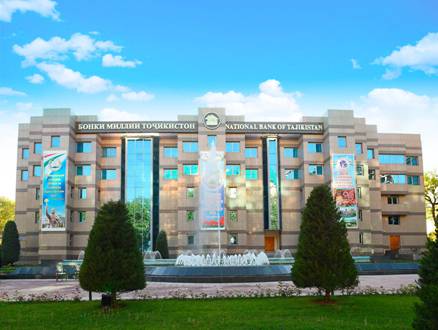
DUSHANBE, 07.05.2020. (NIAT Khovar) – The IMF Executive Board has approved a $189.5 million loan to help Tajikistan meet its urgent needs for financing the balance of payments and budgetary needs associated with the COVID-19 pandemic.
In order to maintain macroeconomic stability, the authorities are taking measures to supplement the healthcare budget, strengthen social protection of vulnerable groups and support enterprises during the current shock.
The loan was made under the accelerated lending mechanism (RKF) in the amount equivalent to $189.5 million (80 percent of the quota). These funds are earmarked to go toward avoiding serious destabilization of the economy and to meet the urgent health and social expenses associated with COVID-19. This crisis is expected to have significant economic and social consequences in Tajikistan. It is currently projected that the economy will shrink by 2 percent this year, and the overall budget deficit could grow to 7.7 percent of GDP.
Following the discussion of the Executive Board, Deputy Managing Director and Chairman Tao Zhang made the following statement:
“The COVID-19 pandemic has serious humanitarian and economic consequences for Tajikistan. Failures in trade and transportation led to a sharp reduction in remittances and government revenues and created an urgent need to finance the balance of payments and budget.
The authorities in response adopted an action plan and measures to contain the pandemic. Health expenditures and targeted support for the most vulnerable households and sectors of the economy are urgent priorities, and a temporary increase in the budget deficit in these conditions is justified. The country’s authorities are committed to ensuring full transparency and providing information on resources allocated to emergency response, including the publication of quarterly reports and retrospective reviews of crisis costs. In the medium term, the authorities are committed to fiscal consolidation and a prudent borrowing policy to reduce the budget deficit and put debt on a stable path. The authorities also intend to maintain exchange rate flexibility, improve the functioning of the foreign exchange market to support economic growth, and make external adjustments while avoiding excessive volatility and economic disruptions. Changes in liquidity and inflation will continue to be closely monitored as part of monetary policy.
The IMF financial assistance under the RKF will provide a significant portion of the funding needed to implement anti-crisis measures. To bridge the remaining funding gap, the provision of additional concessional and grant financing from the international community is of vital importance.”











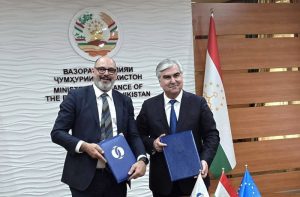 Tajikistan, EBRD sign loan and grant agreements for energy loss reduction project
Tajikistan, EBRD sign loan and grant agreements for energy loss reduction project Tajikistan to Welcome Global Investors at “Dushanbe Invest-2025” Forum
Tajikistan to Welcome Global Investors at “Dushanbe Invest-2025” Forum Tajikistan’s Transport Minister Highlights Importance of Joint Projects in Seoul
Tajikistan’s Transport Minister Highlights Importance of Joint Projects in Seoul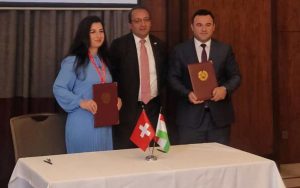 Tajik–Swiss Business Forum Held in Dushanbe
Tajik–Swiss Business Forum Held in Dushanbe Direct Air Connectivity Established Between Xi’an and Dushanbe
Direct Air Connectivity Established Between Xi’an and Dushanbe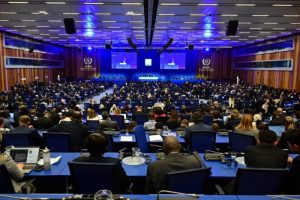 Tajik Delegation Participates in 69th IAEA General Conference
Tajik Delegation Participates in 69th IAEA General Conference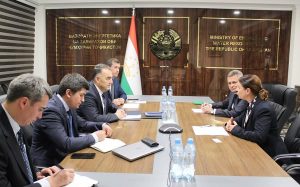 Swiss Cooperation Office Ready to Develop New Initiatives in Tajikistan
Swiss Cooperation Office Ready to Develop New Initiatives in Tajikistan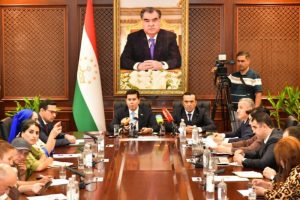 Tajikistan attracts USD213 million from international financial organizations
Tajikistan attracts USD213 million from international financial organizations Tajikistan Chamber of Commerce and Industry Opens Representative Office in Beijing
Tajikistan Chamber of Commerce and Industry Opens Representative Office in Beijing International Artificial Intelligence Conference to Be Held in Dushanbe in October
International Artificial Intelligence Conference to Be Held in Dushanbe in October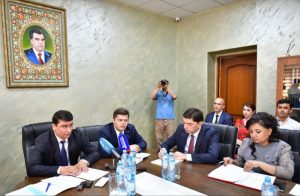 Tajikistan’s Foreign Trade Turnover Exceeds $4.7 Billion in First Half of 2025
Tajikistan’s Foreign Trade Turnover Exceeds $4.7 Billion in First Half of 2025 Chinese Investors Familiarize Themselves with Activities of Kulob Free Economic Zone
Chinese Investors Familiarize Themselves with Activities of Kulob Free Economic Zone














